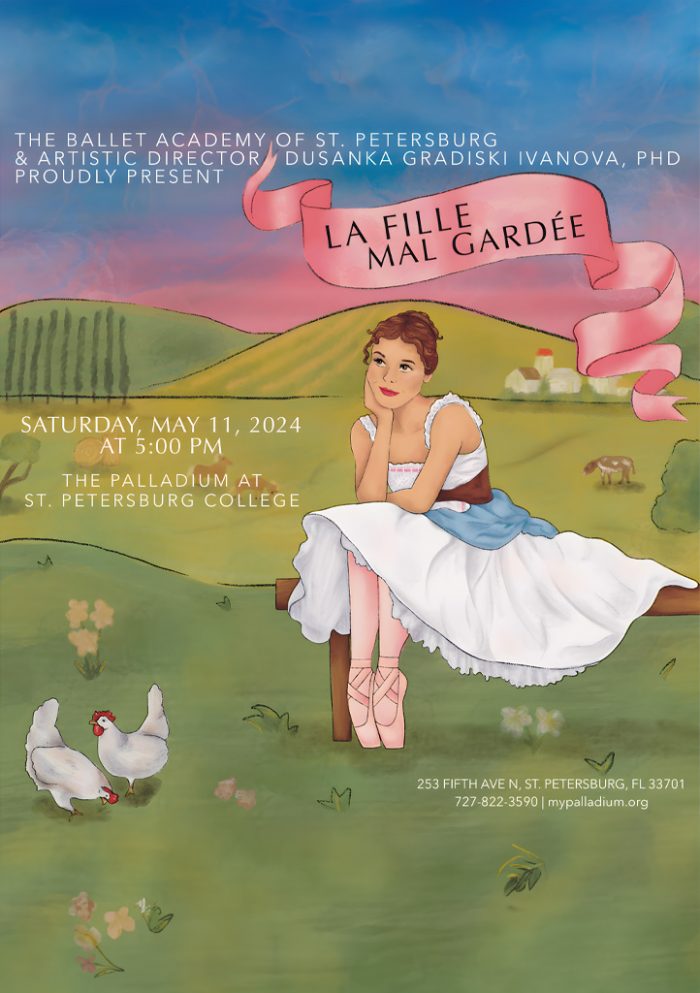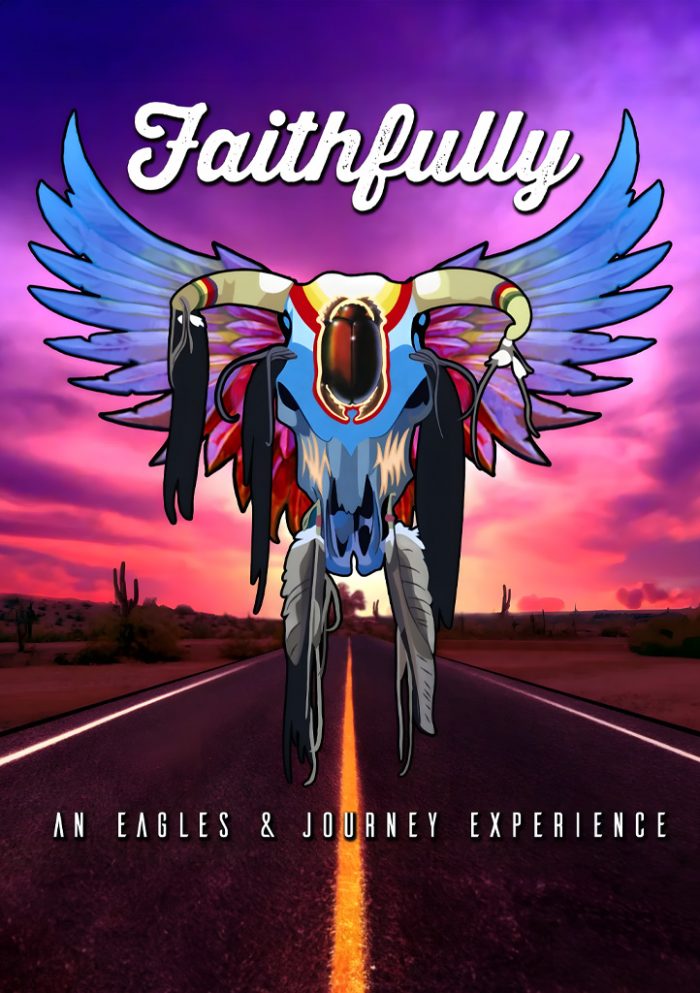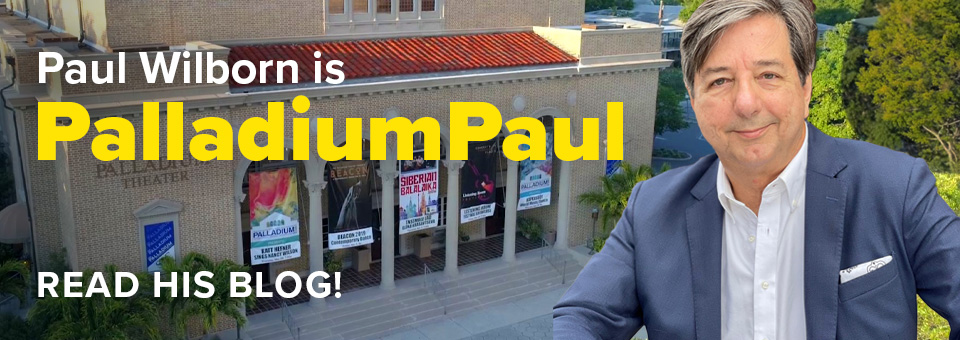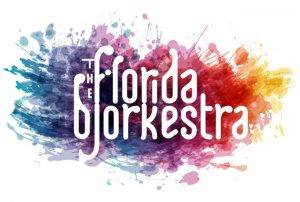The Palladium has become Tampa Bay’s home for jazz and that continues this Thursday night in the Side Door. We are welcoming Bill Cunliffe, a Grammy winning pianist and arranger, to our intimate nightclub.
Mike Cornette, jazz director of WUSF Radio, will be doing a interview with Cunlife, on his show this week. Keep an ear out for that. For tickets and info, call our box office at 727 822-3590 or follow this link for on-line tickets.
Here’s what folks are saying about his recent appearances:
“Our audience loved the show; several folks thought that the
chemistry of the trio was the best they’ve ever heard.”
Doug Moody, North Coast Brewing Company
“BIll Cunliffe (and his trio) shared his genius with us in Roswell,
with some of the most brilliant piano playing we’ve heard!”
Michael Francis, Executive Director, Roswell Jazz Festival
To get you ready for the show, here’s a transcript of an interview Cunliffe gave to the LA Jazz Scene show in Los Angeles. It was originally broadcast in April 2010.
LA Jazz Scene: What is a typical week like for you? Are you highly scheduled or do you have enough free time for yourself?

Cunliffe in his studio
Bill: I teach at Cal State Fullerton from Tuesday through Thursday, so those days are packed. I have to be there by 10 a.m. Living in Studio City, that can be a challenge just getting there. My iPhone has a great GPS program on it, though, so I can usually figure out the best way to get there in under an hour.
I get out of school around 7 p.m., and might just do homework, grade papers, etc, until 8. Then I’m home in about 50 minutes. Often I stay down there one night a week . . . there are many good cheap hotels down there.
I teach improvisation, direct four combos, a big band, have five piano students and teach arranging or jazz history. It’s a lot crammed into three days, but I really enjoy my students.
LAJS: You lived in New York for some time. You sent us columns from N.Y. so we got an idea about the jazz scene there. Why did you return to L.A.? What didn’t you like about New York?
Bill: I’ve been torn between N.Y. and L.A. for quite some time. I still have a place in N.Y., which is rented out a lot, and I love the people there, the scene, the energy. But it’s expensive, and living there takes up a lot of energy.
LAJS: It seems you’ve found enough work to satisfy you here in L.A. What makes L.A. good for musicians – the weather, connections, networking, more recording opportunities, etc. What do you think it is for you?
Bill: For me, work has been good in L.A. and I have a great church here (All Saints in Pasadena where I’m composer in residence) and a great girlfriend, Wanda Lau, who is a copy editor for the L.A. Times. And the weather doesn’t hurt, either!
I never got into the studio scene here, just fell in with great players, such as John Clayton, Clay Jenkins, Bob Sheppard and Joe LaBarbera, and just couldn’t leave. Trombonist Bruce Paulson, who now lives in New Zealand, had a great weekly jam session at his house . . . that’s where I met a lot of my friends.
I do feel that because I travel a lot, L.A. is cool. If I were dependent on the L.A. jazz scene for my happiness, it wouldn’t be enough. It’s a very good scene, don’t get me wrong, and very underrated, but one night in N.Y., or even Chicago, tells you there’s a lot more out there.
These days, I’m as much a composer as a player, and L.A. is good for that. Excellent engineers and recording studios, and plenty of great players on every instrument. As the industry recording thing declines, it’s actually better for composers now, because you can get your stuff played and recorded, and these amazing players are available and interested in new things.
LAJS: You were nominated for a Grammy and won. Tell me about the recording and how it came about. What made it special for you?
Bill: George Klabin, a fine studio engineer (and owner of a health food supply company) recently started a record label,Resonance Records. We had done a record, “Blues and the Abstract Truth, Take 2, (the music of Oliver Nelson)” and we were very pleased with it. He knew I was an arranger, and he wanted me to help him do a tribute album to the music of Oscar Peterson.
He knew of a Romanian pianist, Marian Petrescu, now living in Finland, who he said was the perfect guy. Boy, he was right on that one. Marian is amazing . . . really can do Oscar, technically. And a beautiful cat, easy to work with, and a lovely spirit.
Growing up, Oscar was my favorite player, and even though I had to get away from him, somewhat, to find myself, I thought the project would be a lot of fun. We picked out some of the repertoire together, and I really wanted to do some things from the Oscar “West Side Story,” album. George was like, “I don’t know, it’s a lot of stuff, too much music,” and I reminded him of the classic Buddy Rich arrangement of “West Side” that I played every night for a year and a half.
I thought we could do a 13-14 minute medley of the stuff, and it would be a real big hit, especially on live gigs. He agreed, and we did it, and it came out great. In fact, he said, “This is a Grammy winner,” and I poo-pooed him. But he was right!
LAJS: Tell me what the whole Grammy timeline is: How are you nominated, by mail or a phone call? Then what happens? What’s the time element here, weeks, months? How did you feel when you were nominated? Who was the first person you called with the news?
Bill: Grammy submissions are due in the fall. If you’re a member, you can nominate yourself, or someone else who is a member can nominate you. To be a member, you have to have recorded or participated in an album that’s available nationwide, which means it’s primarily musicians, engineers and producers who vote.
There are three levels, a call for ballot submissions, a call for final nominations in each category, and a final vote for the winner, which is announced in the end of January. The members vote, as far as I can tell, for the final nominations, and the winner.
There are committees of respected experts, in each chapter, there are 12 or 13 of them. They are a factor in the voting, which is great, because the Grammy, to win, your peers have to vote for you. From what I can tell, and I’m not an expert, it’s a combination of the chapters, and the popular vote.
I’m savvy enough to know that as a jazz player I’m competing with the universe, but the arranging category is a bit smaller, so the odds of recognition are a little better.
This was my third nomination. I really didn’t expect to win, there were some great entrants in my area, Jeremy Lubbock, Michael Giaccino and Vince Mendoza, one of my personal heroes. But it was a real thrill.
LAJS: Tell me what it’s like to actually stand on the stage and accept the Grammy. What were you feeling?
Bill: If you go on grammys.com, and scroll to minute 27 of the awards (it has since been taken down) you can see me, breathlessly running up to the front. I was sitting in the back with my girlfriend, Wanda, and friends Tierney Sutton and Alan Kaplan, her husband.
I wasn’t expecting to win, obviously, so I was way in the back, just talking. For whatever reason, I had sketched out my “bullet points” in the bizarre case of having to make a speech – you gotta thank George Klabin, the owner of the label, the cats in the band, your girlfriend, Oscar Peterson (since I borrowed much from him in the arrangement), and, of course, Leonard Bernstein.
When I got up there, I saw that in the band were a lot of friends, Ron King, Brandon Fields, etc, and I said, to no one in particular, “Yeah, getting an award is nice, but you guys have a GIG! Get me on it!!”
I’ve heard from so many friends about the award, and it’s been a wonderful experience, but I returned to earth very quickly. The next day, I was sitting in my living room with dozens of Cal State Fullerton student schedules sprawled around me, trying to figure out who’s playing in the jazz small groups there. (Sigh)
Winning the Grammy has made me a little less obsessive/compulsive about my career. I always feel like I don’t do enough, I need to study, create more, hustle more work, etc, etc. All you musicians know how that is. But I can relax a little bit more.
I certainly don’t have to worry about winning the Grammy ever again, or being concerned about how people think about me. And, more importantly, I can really reflect that I’ve taken, maybe not the perfect life path, but a very good one, and I’ve done pretty much the best I can to make the most of myself.
LAJS : What are your future plans? What are looking forward to, more collaborations, composing, or something entirely new?
Temple University Symphony Orchestra performing at Lincoln Center’s Alice Tully Hall with Luis Biava conducting and Terell Stafford on Trumpet.
Bill: What I’m really excited about now is the N.Y. premiere of a concerto I’ve written for trumpeter Terell Stafford and the Temple University Symphony Orchestra. It’s called “fourth stream… La Banda,” and it’s a fusion of jazz, classical and Latin music. They are doing it at Lincoln Center in two weeks, and recording it next week. I have always loved the orchestra, and it was a thrill to write exactly what I wanted to write, and get it played. (These performances were in April 2010)
LAJS: If you weren’t a musician, what would you choose to do to make a living? I’m just being curious here, maybe you have other talents or skills that mean a lot to you.
Bill: I’m lucky to live in Studio City, just two blocks from a very fine Italian restaurant, Vitello’s. Many of you remember it from the Robert Blake days.
I used to take people on my Studio City/Hollywood tour. I take them to Robert Blake’s old house, it used to have written on it, “Mata Hari Ranch.” eeecchh! Then I’d take them to Vitellos, and show them the dumpster. Well, not THAT dumpster, but any old one. You just make up things, like the double decker bus drivers in N.Y.C. do. According to them, Madonna lives in about eight different apartments in New York. Anyway, then I take them to the Brady Bunch house on Dilling, the one they showed at the beginning of the program.
April Williams has been managing the music there for over a year now, and she’s a great lady, supports the cats, does everything right. The room is acoustically excellent, and the young sound guys are cool, into the music, and do their job. She’s had a few big bands in there, and it sounds fantastic. So I decided to do, perhaps, the dumbest thing, the most foolhardy thing a musician can do. Start a big band.
Well, for one night, anyway. My old friend Bruce Paulson did this for a gig in Alaska, announcing, “this is the first AND last gig of the Bruce Paulson Big Band.” And it was, too.
This night, in April (2010), will be a little less stressful. Just an hour-and-a-half, and we’ll finish with the Grammy-winning “West Side Story” arrangement. I’m getting as many of the cats from the session that I can. We’ll start with champagne at 7:30, and the band kicks off at 8:30 until 11. Should be fun. If you have a lot of champagne, we’ll sound even better.
Future plans?
I’m a little bit in transition. I’ve been writing so much, the piano looks lonesome over there. Gotta go give it some love!! Flutist Holly Hofmann and I have a duo, and we have a new record out on Capri Records (“Three’s Company”), and we’re going to do more with that.
And I’m going to Hawaii in June with my girlfriend, Wanda. We recently celebrated a year together, to the amazement of my friends!








Leave a Reply